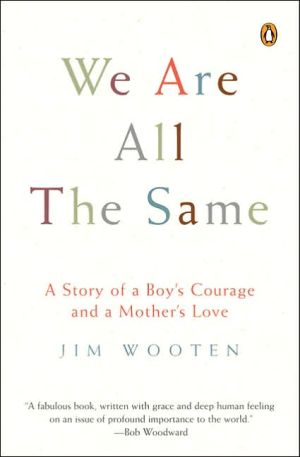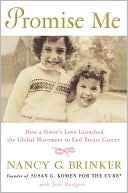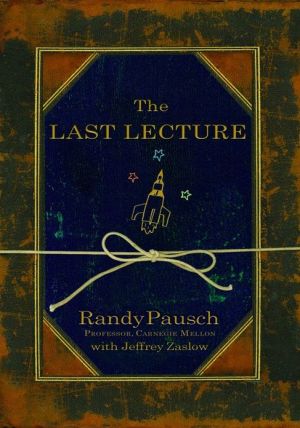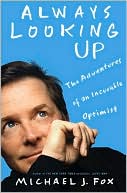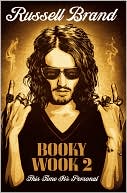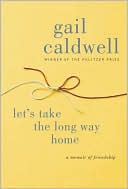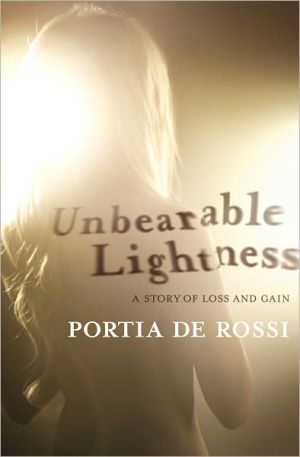We Are All the Same: A Story of a Boy's Courage and a Mother's Love
"Wooten has pulled off something close to miraculous... and touched the face of HIV/AIDS with compassion and humanity. —Alexandra Fuller, Chicago Tribune\ "This is a book not to be missed." —People\ "Amazing and tender... in this special book [Wooten] brings home the tragedy of AIDS." —Liz Smith, New York Post\ "Wooten rightly disregards journalistic distance and writes himself into the work, making it read like a contemplative literary memoir." —Time Out New York
Search in google:
The extraordinary story of the little South African boy whose bravery and fierce determination to make a difference despite being born with AIDS has made him the human symbol of the world's fight against the disease, told by the veteran American journalist whose life he changed. Publishers Weekly The author, an award-winning senior correspondent for ABC News, has written an extraordinarily moving account of a courageous South African boy's battle with AIDS that is also a scathing indictment of South African leaders who have failed to confront the AIDS epidemic in their country. Nkosi, born in 1989 in the former Zululand, was infected by his poverty-stricken mother, Daphne. As Wooten recounts, Daphne moved heaven and earth to insure that her son would be provided for after her own death and agreed to his adoption, at age three, by Gail Johnson, a white South African, who had met Nkosi at a hospice. A hero in her own right, Johnson nourished Nkosi's strong spirit, which gave out only when he died at the age of 12. Before then, Johnson and Nkosi traveled internationally to gain support for Nkosi's Haven, a home for women and children with AIDS in South Africa. Looking at the larger picture, Wooten points out that Nelson Mandela refused to deal with the AIDS crisis because he was embarrassed to speak publicly about sex (a position he later said he regretted). Mandela's successor, Thabo Mkebi, has also hampered attempts to get antiretroviral drugs to AIDS victims, absurdly denying that the virus HIV exists. According to Wooten, 20% of South African girls are currently infected with HIV and 7,000 infants die of AIDS each month. This powerful account puts a human face on a catastrophic epidemic that grows worse daily. (On sale Nov. 4) Forecast: Nkosi's fame was such that his obituary appeared on the front page of the New York Times. A tie-in to World AIDS Day promotion should help garner sales for this title. Copyright 2004 Reed Business Information.
\ From Barnes & NobleIn 2004, 5 million people worldwide contracted HIV. Beneath that incomprehensible statistic are real people whose lives are being torn apart. We Are All The Same is the story of one AIDS victim, a young South African boy who became infected at birth. ABC News Senior Correspondent Jim Wooten unfolds the abbreviated saga of Nkosi Johnson, a Zulu boy who died when he was only 12, but not before he had become a human symbol of the uphill fight against this ravaging disease.\ \ \ \ \ Publishers WeeklyThe author, an award-winning senior correspondent for ABC News, has written an extraordinarily moving account of a courageous South African boy's battle with AIDS that is also a scathing indictment of South African leaders who have failed to confront the AIDS epidemic in their country. Nkosi, born in 1989 in the former Zululand, was infected by his poverty-stricken mother, Daphne. As Wooten recounts, Daphne moved heaven and earth to insure that her son would be provided for after her own death and agreed to his adoption, at age three, by Gail Johnson, a white South African, who had met Nkosi at a hospice. A hero in her own right, Johnson nourished Nkosi's strong spirit, which gave out only when he died at the age of 12. Before then, Johnson and Nkosi traveled internationally to gain support for Nkosi's Haven, a home for women and children with AIDS in South Africa. Looking at the larger picture, Wooten points out that Nelson Mandela refused to deal with the AIDS crisis because he was embarrassed to speak publicly about sex (a position he later said he regretted). Mandela's successor, Thabo Mkebi, has also hampered attempts to get antiretroviral drugs to AIDS victims, absurdly denying that the virus HIV exists. According to Wooten, 20% of South African girls are currently infected with HIV and 7,000 infants die of AIDS each month. This powerful account puts a human face on a catastrophic epidemic that grows worse daily. (On sale Nov. 4) Forecast: Nkosi's fame was such that his obituary appeared on the front page of the New York Times. A tie-in to World AIDS Day promotion should help garner sales for this title. Copyright 2004 Reed Business Information.\ \ \ Library JournalAt first glance, this book is about Nkosi Johnson, a young African boy with AIDS, and his fight both to live and to help other AIDS victims. But it becomes much more than that. ABC senior news correspondent Wooten tells the story of the bond between Nkosi and his birth mother, Daphne, who gave him up for the sake of his health and who subsequently succumbed to AIDS, and his white adoptive mother, Gail, who made his illness her number one priority. With Nkosi's help, Gail established two homes in Africa for AIDS victims and traveled around the world with Nkosi as he educated people on the plight of those who suffer from AIDS. Wooten is a clear and visual writer, but at times he gets sidetracked; the meat of the story, Nkosi's AIDS activism, doesn't appear until more than halfway through the text. Nevertheless, this multifaceted book will complement many library collections, particularly health collections in public or academic libraries.-Nicole A. Cooke, Montclair State Univ. Lib., NJ Copyright 2004 Reed Business Information.\ \ \ \ \ Kirkus ReviewsA veteran TV newsman's heartfelt account of the relationship between Nkosi, a Zulu boy with AIDS, and Gail Johnson, his white South African foster mother, a woman committed to giving her doomed, beloved child the best life possible. A public figure in South Africa since 1997, when Gail successfully campaigned to have him admitted to the local public school, Nkosi was about to deliver a keynote address to the 13th International Conference on AIDS. In the audience, the author was immediately captivated by the frail, extraordinarily charming 11-year-old. Wooten, a senior correspondent for ABC News, was no stranger to Africa and its myriad of social, political, and economic troubles when he was assigned a story on Nkosi in 2000. He eventually put together the life of Nkosi's birth mother and her family as well as that of Gail and her husband and children, all against the background of apartheid and its aftermath in South Africa and the rising tide of AIDS, which was sweeping across the continent. In 1991, after witnessing a friend's brother dying of AIDS, Gail established a refuge for AIDS victims in the Johannesburg suburb of Houghton, where Nkosi's AIDS-stricken birth mother Daphne brought her two-year-old son to live. A year later, when the refuge ran out of money and was forced to close, the desperate and soon-to-die Daphne agreed to let Gail take Nkosi home and keep him as part of her own family. He lived with the Johnsons until his death in 2001. Woven into this love story between a black child and his white foster mother is the bleak tale of South Africa's failure to deal with the massive problem of AIDS. Former president Nelson Mandela essentially ignored the problem, and currentpresident Thabo Mbeki insists that HIV doesn't exist, despite Wooten's claim that South Africa now has some four million AIDS victims, with each day bringing some 1,700 new infections. These numbers register in the brain, but the story of one valiant little boy and his remarkable foster mother goes right to the heart.\ \
